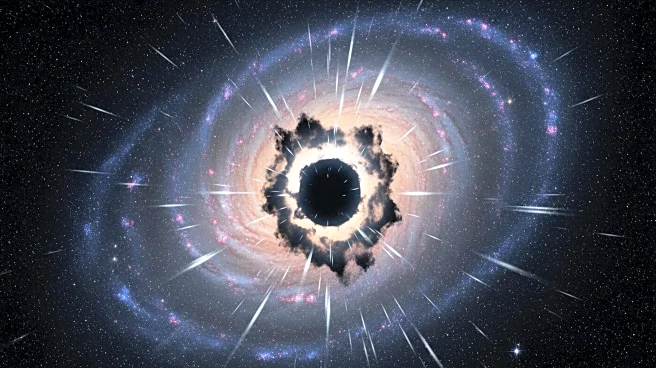What is the story about?
What's Happening?
Researchers suggest a 90% chance of observing an exploding black hole within the next decade. This prediction is based on a new model involving primordial black holes, which are theorized to have formed shortly after the Big Bang. The model, called the 'dark-QED toy model,' proposes that these black holes could explode, releasing a range of particles, including those beyond the standard model of particle physics. Such an event would provide direct evidence of primordial black holes and offer insights into the universe's early conditions.
Why It's Important?
Detecting an exploding black hole would be a groundbreaking discovery, confirming the existence of primordial black holes and potentially revealing new particles. This could revolutionize the understanding of black hole physics and the early universe. The ability to observe such an event with current technology underscores the importance of continued investment in astronomical research and infrastructure. The findings could also have implications for particle physics, offering clues about dark matter and other fundamental questions.
What's Next?
Astronomers are preparing to observe potential black hole explosions using existing telescopes. If successful, these observations could lead to a reevaluation of current theories and models. The research team plans to refine their model and explore its implications further, potentially leading to new discoveries in both astrophysics and particle physics.















